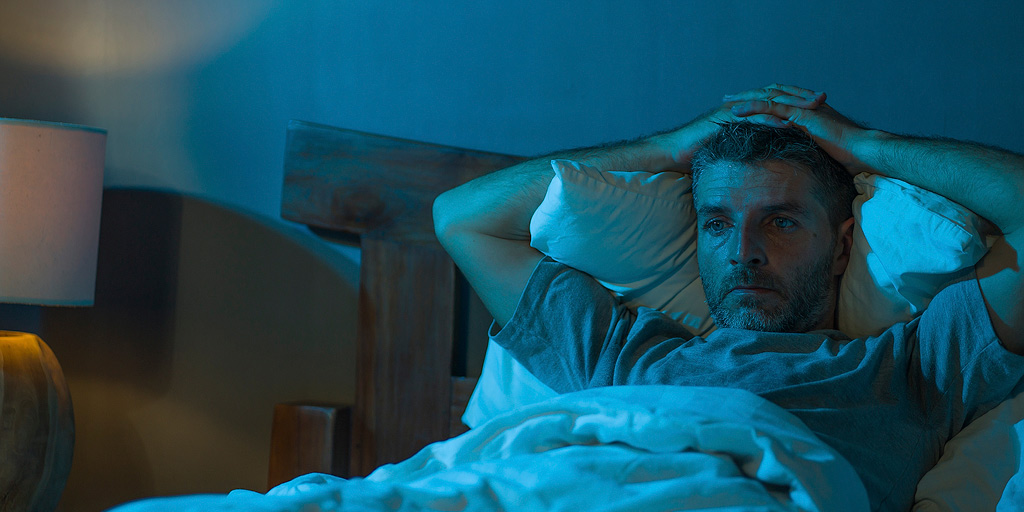
Everyone dreams, every night. You too, even if you say you don’t. Researchers have found that dreams are universal experiences, shared with our pets. But what exactly happens during dreaming? And how can we make our dreams more vivid? Discover in this blog how you can start dreaming tonight and wake up with a head full of stories.
You Do Dream
People often say: “I never dream.” We dare to say that this is not true. It turns out from various studies that everyone dreams; every night. And it is likely that humans are not the only animals who do. Dog owners and cat lovers see the same thing. When our four-legged friends close their eyes, we sometimes see them go on adventures. When they wake up, they are often a bit confused. Cats may start meowing (which they only do to get our attention), and dogs may come to us with all sorts of emotions. It could be that the line between dream and reality isn’t as clear for them as it is for us, but they can’t tell us that. For now, we can only guess.

Or maybe not? Dogs trained to lie in an MRI scanner show the same change in brain activity as humans, especially during REM sleep. REM sleep (Rapid Eye Movement) is so named because we rapidly move our eyes and eyelids during this sleep. It’s a period when we store memories and experiences of the day like a computer into long-term memory. Additionally, scientists have discovered that our dreams are most intense during REM sleep, but we don’t only dream during this phase of rest.
The Sleep Stages
Our sleep cycle is a fascinating mix of different stages, and NREM (Non-Rapid Eye Movement) sleep consists of three specific stages.
-
NREM Stage 1 (N1): This is the dreamy beginning of our sleep journey, a transition phase between wakefulness and sleep. Here, we slowly drift away, our muscles relax, and our breathing rhythm slows down. This is the stage where you can be easily awakened by sounds or movements.
-
NREM Stage 2 (N2): In this stage, we sink deeper. Our body temperature drops, and our heart rate slows even more. This is the stage where we spend most of our sleep. It features brief bursts of brain activity that help us stay asleep.
-
NREM Stage 3 (N3): Also known as deep sleep or Slow Wave Sleep (SWS). Here, our body truly recovers and rebuilds. This is the stage where it’s hardest to wake up, and where growth and repair occur. During this phase, our body produces the most growth hormones.
-
REM Sleep: After the deep NREM stages, we enter the vivid REM sleep, where our dreams come to life, and our brain is active. This is where emotions are processed, and creativity is stimulated.

Is Dreaming a Lot Dangerous?
Some people dream a lot: every night, one or more adventures. You might wonder if frequent and intense dreaming is dangerous for mental health.
No, it’s not. There is nothing wrong with dreaming itself. Dreams are a result of daily life. That’s also the time when problems arise. PTSD (Post-Traumatic Stress Disorder) is a condition where recurring nightmares become problematic. As a result, you not only sleep worse, but you also develop an unhealthy relationship with sleep. If you no longer want to sleep, it causes all sorts of issues. So, if you’re reading this and recognizing something, it’s time to go to the doctor. Maybe you can sign up for a clinical trial to use psilocybin from magic mushrooms under professional supervision to gradually release trauma.
7 Tips to Dream Well Tonight
1 Experience New Things
One of the most effective ways to dream is by experiencing new things during the day. Sleep researchers call this novelty. Our brain processes and integrates new experiences during sleep, leading to more varied and vivid dreams. Try new activities, visit unfamiliar places, meet new people, or start a new hobby. These new stimuli give your brain a wealth of information to work with during dreaming. By breaking your daily routine and exposing yourself to new stimuli, you not only stimulate your creativity and problem-solving abilities, but you also increase your chances of adventurous and meaningful dreams. At the same time, people who do the same things every day are also the ones who say they don’t dream or hardly dream at all. So go out, explore, and get inspired – your dreams will thank you!

2 Limit Caffeine, Weed, and Alcohol
What you consume during the day influences your sleep quality and thus your dreams. Avoid caffeine and alcohol in the evening. Caffeine can keep you awake and disrupt your sleep cycle, while alcohol makes your sleep restless. Although a glass of wine may help you fall asleep, it reduces REM sleep, the phase in which you dream the most. Weed also disrupts REM sleep.. By limiting cannabis, caffeine, and alcohol in the evening, you give your body the chance to go through a natural and uninterrupted sleep cycle, leading to more and vivid dreams. If you want to use weed, do it earlier in the day or early in the evening so it’s out of your system by bedtime. Caffeine takes the longest to leave your body. Dr. Matt Walker recommends in his book Why We Sleep not to consume caffeine after noon.
3 Optimize Your Sleep Environment
A good night’s sleep starts with an optimal sleep environment. Make sure your bedroom is dark, quiet, and cool. Invest in blackout curtains to block street lights and use earplugs or a white noise machine or app to mask sounds with noise. A sleep mask can also help block light, especially if your partner goes to bed later. A cool room, with a temperature between 15 and 19 degrees Celsius, promotes the sleep stages where dreams are most vivid. With these adjustments, you create the perfect environment to experience more and more intense dreams.

4 Use Aromatherapy
Aromatherapy can do wonders for your sleep quality and thus for your dreams. Scents like lavender, chamomile, and sandalwood are known for their relaxing properties. Use a few drops of essential oil on your pillow, place a diffuser in your bedroom, or light an incense stick. The calming effects of these scents help you fall asleep faster and promote deeper sleep, resulting in more intense and better-remembered dreams. Experiment with different scents to find out which works best for you.
5 Keep a Dream Journal
Just because you dream doesn’t necessarily mean you remember your dreams. Remembering your dreams and even experiencing lucid dreams starts with keeping a dream journal. Place a notebook and pen next to your bed and write down your dreams as soon as you wake up. By following this routine, you train your brain to remember dreams better. Over time, you’ll notice that you can capture more details and that your dreams become more vivid. Moreover, writing down your dreams helps you recognize patterns and maybe even stimulates lucid dreaming, where you are aware that you are dreaming and can control the events in your dream.

6 Meditate or Practice Yoga
Reducing stress and promoting relaxation are essential for a good night’s sleep and vivid dreams. Meditation and yoga are excellent methods to calm your mind before bed. By meditating daily or doing simple yoga exercises, you can release stress and prepare your body for deep sleep. These relaxation techniques help you fall asleep faster and improve the quality of your sleep, giving you more chances to dream and remember your dreams.
7 Use Dream Herbs
For those who want to deepen their dream experiences, there are special dream herbs that can help. Herbs like mugwort, blue lotus and calea zacatechichi, also known as the "dream herb," are known for their ability to promote vivid and lucid dreams. These herbs can be taken in various forms, such as tea, capsules, or incense. Blue lotus and calea zacatechichi can be prepared as tea or smoked for a similar effect. The seeds of Entada rheedii contain a white substance used in Africa to enhance dreams. Using all these natural remedies can help you experience more detailed and meaningful dreams, giving your nocturnal adventures a new dimension.

Calea zacatechichi (dream herb).
The Meaning of Dreams
Dreams are like a nocturnal journey through our subconscious, a mysterious window into our deepest thoughts and feelings. Some people believe that dreams reveal their meaning through symbolic messages. They could be a way for our brain to process unresolved issues or hidden desires. Others see dreams as a creative playground, where our imagination runs free without the constraints of reality. Sometimes, dreams are simply a reflection of our daily experiences, mixed with a touch of surreal magic. Whether it’s processing emotions, solving problems, or simply enjoying a wild, unrestrained imagination, dreams remain a fascinating and intriguing aspect of our human existence. Who knows, maybe our dreams are a glimpse into parallel worlds where anything is possible, and the boundaries of time and space blur. In fact, there are cultures where this is commonly believed. In Australia, the Indigenous peoples believe that the world originates from the Dreamtime. Whatever you believe about the meaning of dreams, one thing is certain: dreams add an extra layer of depth and wonder to our lives.
Source:
-
Walker, M. “Why We Sleep: Unlocking the Power of Sleep and Dreams”. Oct. 3, 2017. Scribner. ISBN: 9781501144318.